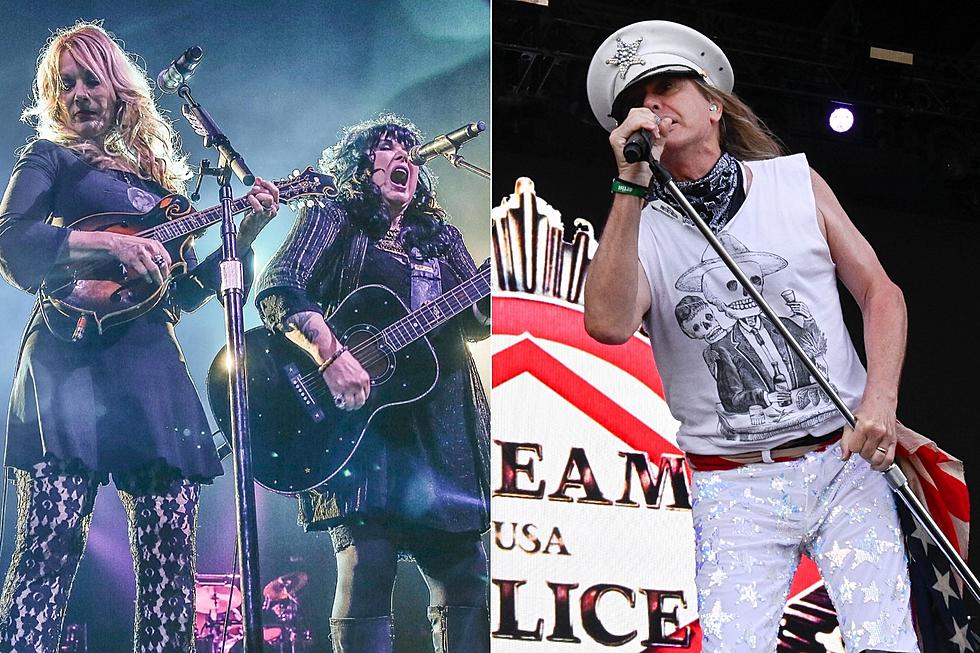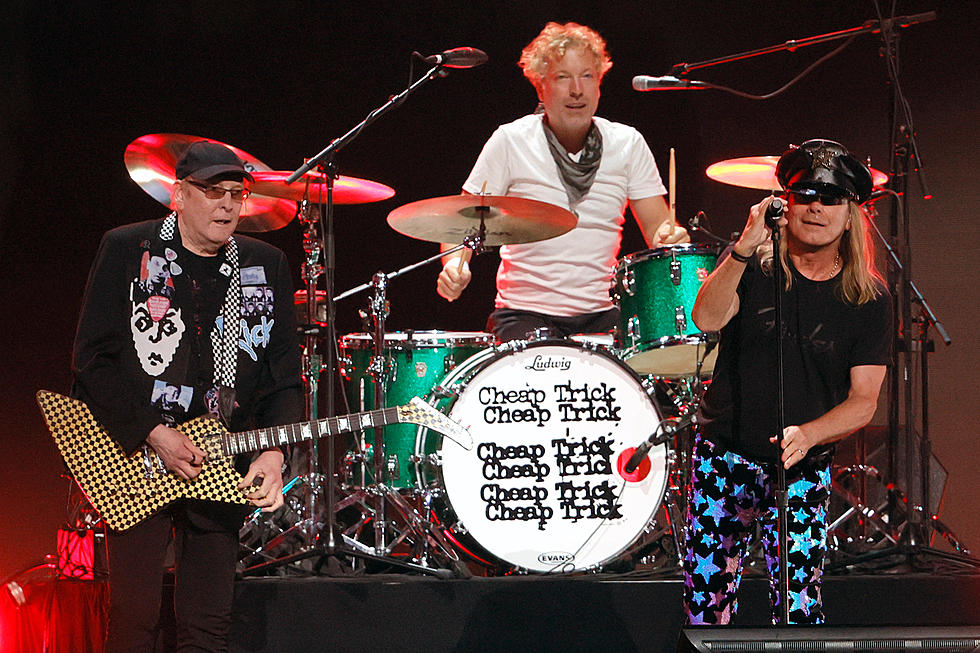40 Years Ago: Cheap Trick Polish Their Sound and Make a Power Pop Classic With ‘In Color’
Cheap Trick's self-titled debut album, which came out in February 1977, showed the band was capable of playing tough rock 'n' roll with the best of the era. But it was their second LP, In Color, released just seven months later, that proved they had a pop side to them too.
Unlike the first album, which was produced by Jack Douglas (the man responsible for making those early Aerosmith records sound so good), In Color was guided by Tom Werman, an A&R man who signed Cheap Trick to Epic Records and had previously worked on Ted Nugent's albums.
With Cheap Trick, he softened some of their rougher edges and brought out the melodies that were lurking just below the surface of so many of their songs. It also helped that the songwriting was tighter and more focused the second time around. (Guitarist Rick Nielsen wrote all 10 of the LP's tracks, two of them with bassist Tom Petersson.) It all added up to the band's first classic album ... though they didn't necessarily feel that way.
Werman spotted the pop hooks that were inherently attached to the group's music. He even noted that they were on the debut too, they just happened to get lost in the rock 'n' roll guitars. With his A&R radar ringing loudly, Werman wanted to make Cheap Trick a Top 40 band. He heard the potential in their songs, which could be just as radio-friendly as the Beatles' at times.
So he turned down the noise, turned up the pop and polished off the edge, a complaint lodged at Werman by Cheap Trick and other clients over the years – including Twisted Sister, who were unhappy with his work on Stay Hungry, their only album to crack the Top 50.
Listen to Cheap Trick's 'Southern Girls'
But Tom Werman hit a sweet spot with Cheap Trick. Despite their problems with his production, they worked with him on their next two studio albums, 1978's Heaven Tonight and 1979's Dream Police, their only Top 10 studio LP. (In between those two records was Cheap Trick at Budokan, the landmark live album that made Cheap Trick stars.) And why not? In Color is a great power pop album, a classic of the genre and a creative breakthrough for the band.
Half of its songs make up half of At Budokan (which was recorded in Tokyo around the time of Heaven Tonight's release): album opener "Hello There," "Big Eyes," "Clock Strikes Ten," "Come On, Come On" and "I Want You to Want Me," which, when released as a live version two years later, became Cheap Trick's breakthrough single.
And they're just as electrifying on In Color, bouncing off the walls and sticking their landings -- especially the hand-clap-powered "Southern Girls," maybe its most enduring song. Almost every piece seems in place. Next to the justly celebrated At Budokan, In Color is the band's most defining record, even if they have misgivings about Werman's studio gloss. Truth be told, the production showcases a side of them that may never have come out otherwise.
(In the late '90s, the band reportedly re-recorded the entire album with producer Steve Albini, an engineer known for his press-"record"-and-let-the-band-go-wild style, which he applied to Nirvana's final studio album, In Utero. The re-recorded In Color never came out, but the sessions have surfaced online.)
The big commercial push for the band didn't really pay off at home. Cheap Trick had to wait another couple of years before one of their albums broke into the Top 40 (Budokan, again), but just one year until Heaven Tonight's "Surrender" nudged its way to No. 62. In Color managed to climb to No. 73 -- a huge achievement seeing that Cheap Trick didn't even crack the Top 200.
But the album was huge in Japan. Those screaming kids, and their eardrum-splitting enthusiasm, you hear on Budokan are real. A couple singles, and the LP, rocketed to the top of the charts there, setting in motion one of rock's greatest fairy tales. No matter how Cheap Trick feel about In Color these days, it's the album that put them on their path to stardom. Without it, and the power-pop sheen Werman gave the record, they may not have ended up eventually making that mainstream breakthrough they were hoping for.
Cheap Trick Albums Ranked Worst to Best
More From Ultimate Classic Rock









